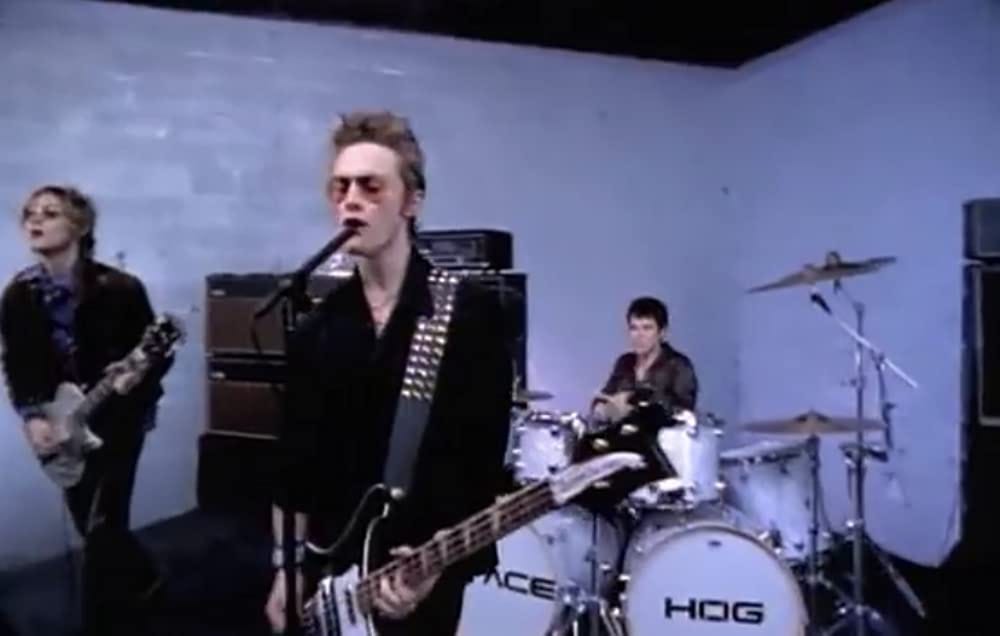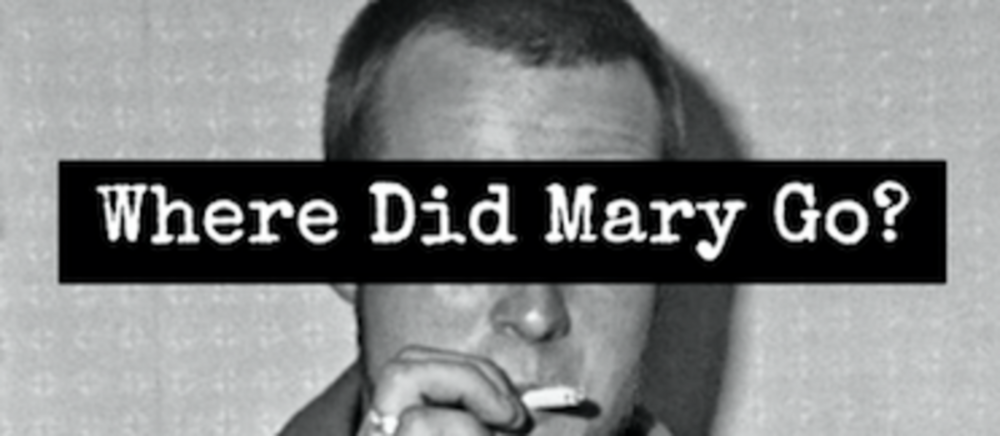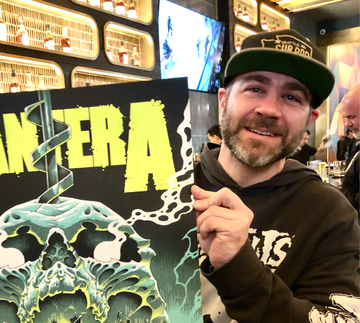Not all one-hit wonders are created equal. Some endure the test of time and become songs that play on the radio, in grocery stores, in social settings, and in pop culture for years to come after they are released. This is true for all eras. The ‘90s alternative scene have a few that have stood the test of time. “Closing Time,” “Tubthumping,” “Bittersweet Symphony,” and “Save Tonight” are the ones that jump to the forefront of my mind. Just recently, Spacehog’s “In the Meantime” was featured on the Guardians of the Galaxy 3 soundtrack, introducing the brilliance of it to a brand new generation of music fans. These, and countless others from all eras, will endure the test of time and be remembered long into the future.

Others aren’t as lucky. They had their moment in the sun, enjoyed the fifteen minutes of fame, and have retreated to obscurity, a fleeting memory of yesteryear that pop up in your brain randomly, if at all. Sometimes it takes a random shuffle of Spotify for you to even remember a song exists, which is exactly what happened to me when I heard Matthew Sweet’s “Sick of Myself” the other day. It’s a great song: catchy, excellent lyrics - hell, Bowling for Soup even covered it! But to me, the song, and Matthew Sweet himself, never really got proper respect for this beautiful composition. You never hear it anywhere. And I thought to myself, why is that? The obvious answer might be quality – perhaps only the best of the best make it through. But how does that explain “Barbie Girl”?
I started to reach down into the recesses of my brain, already filled to the brim with useless music information, to try and remember any other songs that fit into this category: lost, forgotten one-hit wonders that when released received significant airplay, and then, for some reason, fell out of the collective consciousness of even the most seasoned music fans. A little niche, I know. What I came up with is the list below. My hope is to jog your memory a bit, while also seeking to answer my question above: Why do some of the songs mentioned earlier have staying power while the ones below faded as if they never existed?
The Posies – “Dream All Day” (1993)
The Posies were a band that originated in the now renowned University District of Seattle during the late 1980s – the same area that housed Nirvana, Soundgarden, and other bands signed to Sub Pop Records. While the latter were next door writing and rehearsing the records that would alter the musical landscape forever, The Posies were busy writing power pop. Not exactly what comes to mind when you think about Seattle. Happy wouldn’t be a word to describe it either. But “Dream All Day” is both of those things – a power pop hit about relaxing. It has to be the most upbeat and positive song to emerge from that scene. “Dream All Day” charted very well, but The Posies never came close to having another song that did as well. In fact, I dare you to name another Posies song.
Top Chart Position: #4 on Billboard Alternative Airplay
K’s Choice – “Not an Addict” (1995)
There might not be a better song about the general attitude in the ‘90s alternative scene towards drugs than “Not an Addict.” It is a beautiful, haunting song about lead singer Sarah (now Sam) Bettens’ experiences with drugs and the perceptions of drug addiction, that according to the band, neither condones or opposes drug use. The descriptions of using, however, seem overwhelmingly positive, though the lead singer claimed to never have done any hard drugs. The lingering desperation and eerie melancholy vibe seem to tell the story of someone trying to convince themselves of the song’s tagline – “I’m not an addict baby, that’s a lie.” It became an international hit, enough to gain the Belgian band an opening spot for Alanis Morissette, but they would never really be heard from again afterwards.
Top Chart Position: #5 on Billboard’s Hot Modern Rock Tracks
Hum – “Stars” (1995)
I’ve long referred to “Stars” as the most ‘90s song I’ve ever heard. I imagine this song to be the sonic equivalent of being strung out on heroin. The lyrics describe a girl being “found out back looking up and looking dead,” and she has missed several important obligations, it seems (work, school, bed). The riff is all-time heavy, perfectly tuned so you know exactly what era it came from. It’s a very underrated song, and to me, perfectly encapsulates what ‘90s alternative scene was all about (drugs included).
Top Chart Position: #11 on Billboard’s Hot Modern Rock Tracks
The Rentals - “Friends of P.” (1995)
The Rentals are largely the brainchild of Matt Sharp, the original bassist for Weezer. He played on both The Blue Album and Pinkerton before leaving to form The Rentals, leaving him with the cleanest record of any member of Weezer, past or present. “Friends of P.” was the only hit The Rentals ever had, on the back of perhaps the catchiest moog synthesizer riff I’ve ever heard. In fact, the riff was stuck in my head for years before I remembered who wrote the actual song. Who is the P. in question in the song, you may ask? None other than the supermodel wife of Ric Ocasek (RIP), the primary vocalist and songwriter for the Cars and the producer of The Blue Album. Her name is Paulina Porizkova. Her friends call her P., and she’s cool enough to have an entire song written about how awesome she is. Despite all of their posh connections, however, The Rentals never really amounted to much.
Top Chart Position: #7 on Billboard’s Modern Rock Tracks
Superdrag – “Sucked Out” (1996)
Is it a good sign when your band’s breakthrough single is about being jaded with the music industry? Many have said that Superdrag are one of the more underrated bands to be forgotten by the ‘90s. 1996’s Regretfully Yours is allegedly very good, but I’ve only listened to it once and really couldn’t tell you one way or another. The lead single from the album, however, is a perfect radio hit – even if it rails against the “played out rocking routine” that led the band to their greatest success, which would not continue after this song. Lead singer John Davis (not that one) said it best – “Look at me, I can write a melody, but I can’t expect a soul to care.” Looks like he was right.
Top Chart Position: #7 on Billboard’s Modern Rock Tracks
Primitive Radio Gods – “Standing Outside a Broken Phone Booth with Money in My Hand” (1996)
Primitive Radio Gods, though thought to be a full band, was really just a guy named Chris O’Connor who had left his indie band to produce a solo record, which he mailed to thousands of record companies before securing a deal. The famous sample in the song’s chorus is originally from B.B. King’s “How Blue Can You Get,” while the song’s longer than necessary title is lifted almost word for word from a 1978 Bruce Cockburn tune. Seemingly nonsensical lyrics lead to the song’s crescendo, which is O’Connor singing the lyrics sampled from B.B., that lack the passion of the original. It’s good for nostalgia’s sake, but looking back, this song really had no business being as popular as it did. I probably don’t have to tell you, but the Primitive Radio Gods floundered shortly after this, but you can still hear the song anytime you watch The Cable Guy.
Top Chart Position: #1 on Billboard’s Modern Rock Tracks/Adult Alternative
Reef – “Place Your Hands” (1996)
Listen to the first line of this song and tell me this guy’s not saying “Oh place your hands, on my hole.” I was quite surprised to learn that the actual lyric is “on my hope.” Perhaps my misunderstanding was due to lead singer Gary Stringer’s unique vocal style, which is a bit harsh on the ears. Between Stringer’s odd voice and the infective guitar riff, however, Reef was able to enjoy marginal success with this single and not much else before fading back to obscurity.
Top Chart Position: #30 on Billboard’s Mainstream Rock
Tracy Bonham – “Mother Mother” (1996)
A classically trained pianist and violinist, Tracy Bonham actually garnered two Grammy nominations for her 1996 debut album The Burdens of Being Upright. “Mother Mother” was the lead single from the album, and Bonham’s most recognizable song in her catalog. It builds from a simple acoustic guitar riff with a nice vocal melody into essentially a cacophony of noises by the chorus. There was a follow-up single, “The One,” which I also seemed to remember more fondly, which like “Mother Mother,” does not stand the test of time. I understand how important angsty girl rock was in the ‘90s, but there are several better examples of where you can get it than from Tracy Bonham (see Fiona, Alanis, Veruca Salt). After a couple of subpar records, she eventually started working with the Blue Man Group.
Top Chart Position: #1 on Billboard’s Modern Rock Tracks
Geggy Tah – “Whoever You Are” (1996)
Perhaps the worst named band of all time, Geggy Tah broke through into mainstream rock with this song about changing lanes while driving. Not exactly the most riveting content for a four and half minute song, but it was catchy enough to land the band on the alternative rock map and stay stuck in my brain to this day. The band would quickly fall off said alternative map, but their keyboardist and guitarist, Greg Kurstin, was just getting started. Kurstin went on to co-write songs for Pink, Kelly Clarkson, Lana del Rey, Adele, Elle Goulding, Katy Perry, Sia, Kendrick Lamar, and countless others. He has also produced albums for Paul McCartney, the Foo Fighters, and won multiple Grammy awards. If only he had saved some of those hits for Geggy Tah… they still probably wouldn’t have made it because of their terrible name.
Top Chart Position: #67 on US Alternative Airplay
Talk Show – “Hello Hello” (1997)
The band Talk Show formed from the ashes of Stone Temple Pilots while Scott Weiland was working on solo material and struggling with drug addiction. The three remaining members of STP (the DeLeo brothers and drummer Eric Kretz) recruited a guy named Dave Coutts to sing on what I would imagine would have been the band’s 4th album had Weiland been able to get himself together. The only notable song from the album, “Hello Hello,” has a classic Pilots feel. Coutts does his best Scott Weiland impression, but lacks his power and presence. Still, the song got plenty of regular airplay on alternative radio, and is more a footnote of STP’s history more than it is anything else. Talk Show broke up shortly after in 1998 and the real 4th Stone Temple Pilots album was released in 1999, with Weiland back in the mix, for the time being.
Top Chart Position: #131 on Billboard Top 200 (Albums)
Dandy Warhols – “Not If You Were the Last Junkie on Earth” (1997)
Stop me if you’ve heard this one before: it’s a ‘90s song about heroin! I actually remember learning what the word “passe” meant from listening to this song. The cleverly named Dandy Warhols from Portland, Oregon have gone on to have a surprisingly long career due to a cult following, but you’d be hard pressed to find another song they’ve released as popular as this one. Their record label actually blasted the album this song came out on as not having a single – and boy, were they wrong, as “Junkie” became the band’s most notable, and successful, song.
Top Chart Position: #31 on Billboard Alternative Songs
Lo Fidelity All Stars – “Battle Flag (ft. Pigeonhed)” (1998)
The Lo Fidelity All Stars emerged during the electronica explosion of the late ‘90s spearheaded by the likes of the Chemical Brothers, The Prodigy, and Fatboy Slim, amongst others. The beat is undeniably contagious, and when combined with outlandish lyrics (“tell me is it time to get down, on your motherf*ckin’ knees) created an earworm that should still resonate today. And to be fair, any track that features Pigeonhed should be destined to become successful. The only place you can probably still hear it today is if you have an old copy of Coyote Ugly on DVD sitting around.
Top Chart Position: #6 on Billboard Modern Rock Tracks
Marvelous 3 – “Freak of the Week” (1998)
It might be the biggest injustice in music history that you don’t hear this song today everywhere you go. It is the perfect pop rock song and perhaps the best to never get the treatment that songs like “Bittersweet Symphony” and “Closing Time” enjoy today. The verses are short and simple, and the chorus is catchy perfection. The Marvelous 3 deserved so much better.
Top Chart Position: #5 on Billboard Modern Rock Tracks
Videodrone – “Faceplant” (1999)
Here’s where things get really obscure. Videodrone was tangentially related to Korn, as they had a couple of songs featuring Jonathan Davis (yes, that one). “Faceplant” was played regularly for a time on K-Rock even though it was never released as a single. It’s another hauntingly weird song that is probably about drugs – “And if I fall down again, would you let me in when I’m sober?” – that is etched in my brain for one reason or another. It’s a blurry, drugged-out memory of a bygone era but I guess that’s enough for it to remain in my consciousness.
Top Chart Position: #8 on Out of Order with Jed the Fish (probably)
Stroke 9 – “Little Black Backpack” (1999)
This is another song that deserved a lot more love than it got. It had all the elements of a classic: outstanding vocal melodies, interesting verses, and a memorable chorus. Wrought with jealousy after seeing his ex-girlfriend wearing a “little black backpack” while out with another dude, frontman Luke Esterkyn wrote the song as one part macho fantasy and one part derision of a fashion trend in the vein of Eve 6’s “Think Twice.” It soon became a radio friendly hit but would be the summit of the band’s achievements.
Top Chart Position: #6 on Billboard Alternative
Zwan – “Honestly” (2003)
I’m going a bit outside of the ‘90s box here, but with good reason. “Honestly” is one of Billy Corgan’s best songs. Of course, it’s easy to forget about Zwan – they released one album in 2003 and then quickly disappeared. You can’t even find their album Mary Star of the Sea on Spotify (it is available on Apple Music, but no one uses that). The Pumpkins’ front man delivered a beautiful, radio-friendly love song that might be the last best song he’s written. It deserves to be remembered and played frequently. Or at the very least be available on my preferred music streaming service.
Top Chart Position: #7 on Billboard Alternative
Compiling this list has revealed a few things to me. First and foremost, if I had dedicated myself to anything as much as I did to average music from my childhood, I would be far more successful than I am.
More importantly, there are a few different reasons why these songs haven’t endured like some of their ‘90s brethren. This list goes to show that some artists were just the victims of bad luck – the Marvelous 3s, Stroke 9s, and Superdrags of the world. K’s Choice and The Posies, too. They wrote great songs that for some reason lasted in the collective consciousness for a time then fell out of favor for something new.
Other times, a band member’s bigger projects outshined their side projects – Zwan never had a chance against the Pumpkins’ catalog, and neither did Talk Show against STP. Those songs are inherently good, but never got out of their big brother bands’ shadows.
To the contrary, some of the songs are just objectively bad. Reef, Geggy Tah, and Tracy Bonham emerged due to trends in music at the time, but were marginal at best and deserve to be forgotten. The fact that Tracy Bonham had two Grammy nominations is something I wish I could forget. The guy from Geggy Tah going on to be one of the most successful songwriters and producers of a generation is a bigger Cinderella story than the Miracle on Ice. And Reef is just simply bad.
The others are largely period pieces: they’re part of a cross section of what music was at a certain point in time. They remind you of where you were and who you were with when you heard them. And you go, “Oh yeah, I remember The Rentals. That song was pretty good.” And then you move on with your day.
At least Spacehog is finally getting the resurgence they deserve. I’m hopeful that as people from my generation continue to create and influence media, they can incorporate more of these forgotten songs from our youth into pop culture to reignite the sparks that made these songs popular in the first place. But until then, I’ll just continue to complain.
Listen to the songs mentioned above below:


